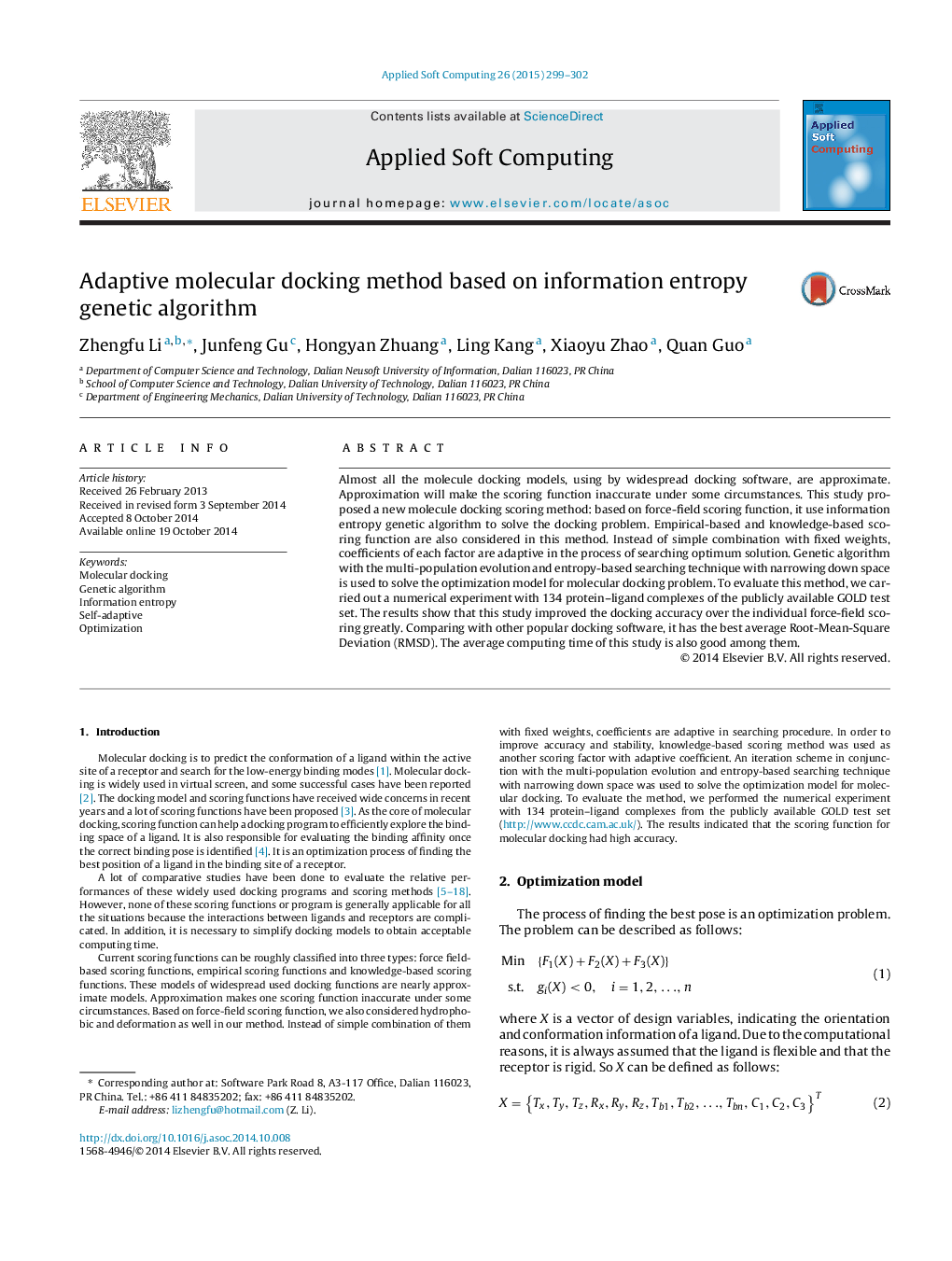| کد مقاله | کد نشریه | سال انتشار | مقاله انگلیسی | نسخه تمام متن |
|---|---|---|---|---|
| 495287 | 862822 | 2015 | 4 صفحه PDF | دانلود رایگان |
• We present a coefficient adaptive scoring function of molecular docking.
• This function improves the docking accuracy greatly.
• Genetic algorithm with the multi-population evolution and entropy-based.
• It is based on force-field scoring, using empirical-based and knowledge-based scoring as other scoring factors.
Almost all the molecule docking models, using by widespread docking software, are approximate. Approximation will make the scoring function inaccurate under some circumstances. This study proposed a new molecule docking scoring method: based on force-field scoring function, it use information entropy genetic algorithm to solve the docking problem. Empirical-based and knowledge-based scoring function are also considered in this method. Instead of simple combination with fixed weights, coefficients of each factor are adaptive in the process of searching optimum solution. Genetic algorithm with the multi-population evolution and entropy-based searching technique with narrowing down space is used to solve the optimization model for molecular docking problem. To evaluate this method, we carried out a numerical experiment with 134 protein–ligand complexes of the publicly available GOLD test set. The results show that this study improved the docking accuracy over the individual force-field scoring greatly. Comparing with other popular docking software, it has the best average Root-Mean-Square Deviation (RMSD). The average computing time of this study is also good among them.
Figure optionsDownload as PowerPoint slide
Journal: Applied Soft Computing - Volume 26, January 2015, Pages 299–302
